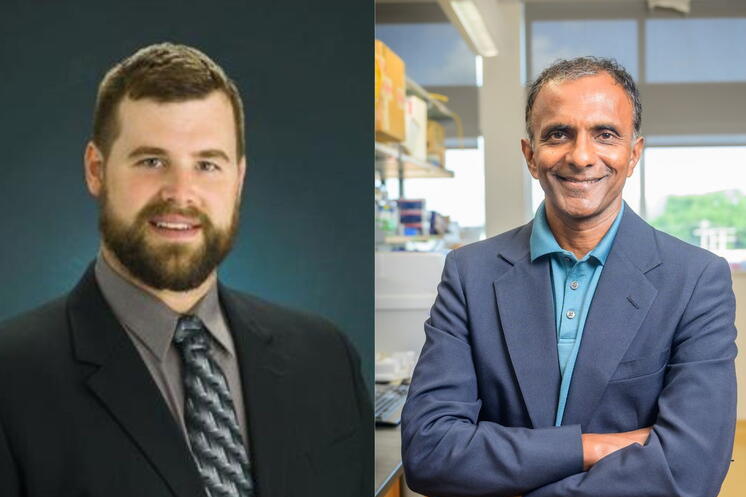Study links urinary tract bacteria to prostate cancer

A study led by Cancer Center at Illinois (CCIL) member Jason Ridlon, associate professor of animal sciences in the College of Agricultural, Consumer and Environmental Sciences (ACES), has revealed that bacteria in the urinary tract can turn corticosteroids into androgens — hormones that help prostate cancer grow. The research is published in Nature Microbiology.
Ridlon led the microbiological research and hypothesis development while Joseph Irudayaraj, professor of bioengineering and CCIL Associate Director of Shared Resources, developed the microbial bead technology used in the experiments.
Ridlon began this work in 2015, hypothesizing that gut and urinary tract bacteria contribute to hormone-driven cancer. “When we obtained our first isolate that generated androgens, we thought, ‘Eureka!’ The hypothesis has some plausibility,” he said. The bacteria converted drugs such as prednisone used in androgen-deprivation therapy into androgens, stimulating cancer cell growth.